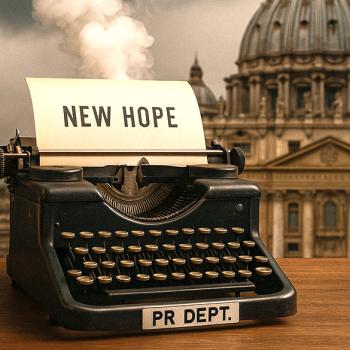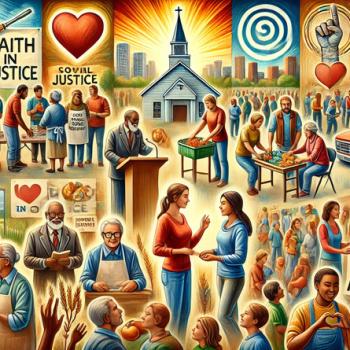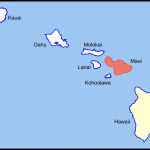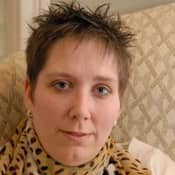Hel, or Hella, is the Norse Goddess of the Underworld who watches over and cares for all those souls who come to Her hall, Helheim, a peaceful realm where the dead are give a chance to rest and reunite with loved ones prior to possible reincarnation. The "Highway to Hel" is something that every person walks from the moment they're born. It is the care with which we cultivate our souls, and the gratitude and courage with which we live each day of our lives.
Sometimes as a shaman I receive some very odd requests from my Gods (and ancestors). One of them, a few months ago, was a dictum from Odin that I look to Hellenic and Roman Paganism and "go make friends." Fortunately for me, I already had colleagues who were part of this body of communities and they directed me to Neos Alexandria (NA). I'm also happy to say everyone there has been incredibly welcoming and hospitable to this odd Heathen who suddenly dropped into their midst! Recently, when the editor of their publishing branch asked if I'd be interested in interviewing several of their authors, I readily agreed. I had read a number of the devotionals coming out of NA and I've been consistently impressed, not only with their quality, but with the strength of piety and devotion clearly evident in each work.
One of the surprising books that was suggested to me for review was Allyson Szabo's examination of the Delphic Maxims, titled Longing for Wisdom. I had heard of the Delphic maxims in passing, but until I read her book, I had no idea of their importance to ancient Hellenic culture and consequently their importance to contemporary Hellenic Paganism as well.
Allyson was kind enough to sit down and answer a few questions for me regarding her faith and her work. This interview was conducted via email the week of November 12, 2010.
I always like to get a sense of where people are coming from when discussing their written work. I find it interesting to see the sometimes circuitous routes that people have taken to find their Gods. So to begin, please tell me a little bit about your spiritual background and what led you to Hellenic Paganism.
I grew up in a militantly atheist household where religion was painted as a crutch and people who went to church were looked down upon as weak and feeble-minded. Of course I had an interest in religions in general, because what child wouldn't in that atmosphere? At 15 or so, I delved into Catholicism, as it was the only church within walking distance of my house and I had the excuse of a Catholic grandmother. I would sneak out on Sunday mornings to attend church, and I took some lessons with the parish priest. Surprisingly, it was he who refused to baptize me. Instead, he urged me to explore. He told me, with solemn face, that he felt I was meant to be elsewhere, but if after careful consideration I still wished to be baptized, then he would do so. I am forever grateful to him, as he gave me the little push I needed to explore on my own.
I discovered Wicca at 17, and began serious training with an Alexandrian Wiccan teacher at 18. I studied with him (and lived with him as my partner) for almost five years. I attained my Second Degree within the Alexandrian Wiccan religion. I also hold honorary Degrees within other Traditions of Wicca. Over the years, I found myself drifting away from strictly Wiccan practices. Much of what Wicca was seemed to be disappearing as it became more public and more accessible, and my own religious observances tended to be far away from both the public and the private beliefs of others. I ceased to call myself Wiccan, and struggled to find a name for what I was actually doing.
A few years ago, I ran into a bunch of people who introduced me to Neokoroi and Neos Alexandria. There I discovered others who worshiped in a similar way to myself, and found a name for what I was practicing: Hellenic polytheism. What I do cannot be considered Reconstructionism (I honor the past and learn from it, but do not feel bound by it in the least), but it is hard polytheism. I believe that the gods are separate, unique entities and that Zeus is not the same as Pater Noster or any other god, though I understand that it's easy to use that explanation when talking with other people who hold different beliefs.
You've written a book published in 2008 through Bibliotheca Alexandrina (Longing for Wisdom) on the Delphic Maxims. What are they? Why are they important to you spiritually?
The Delphic Maxims are best known for the "three biggies" that are written on a plaque outside of a temple at Delphi, and they are:
1. Know yourself.
2. Nothing in excess.
3. Surety brings ruin.





